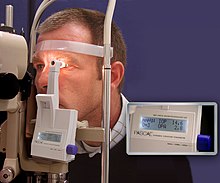The development of new techniques for monitoring
sourceWikipedia
time2015/11/12
The development of new techniques for monitoring is an advanced and developing field in smart medicine, biomedical-aided integrative medicine, alternative medicine, self-tailored preventive medicine andpredictive medicine that emphasizes monitoring of comprehensive medical data of patients, people at risk and healthy people using advanced, smart, minimally invasive biomedical devices, biosensors, lab-on-a-chip (in the future nanomedicine devices like nanorobots) and advanced computerized medical diagnosis and early warning tools over a short clinical interview and drug prescription.
As biomedical research, nanotechnology and nutrigenomics advances, realizing the human body's self-healing capabilities and the growing awareness of the limitations of medical intervention by chemicaldrugs-only approach of old school medical treatment, new researches that shows the enormous damage medications can cause, researchers are working to fulfill the need for a comprehensive further study and personal continuous clinical monitoring of health conditions while keeping legacy medical intervention as a last resort.
In many medical problems, drugs offer temporary relief of symptoms while the root of a medical problem remains unknown without enough data of all our biological systems. Our body is equipped with sub-systems for the purpose of maintaining balance and self healing functions. Intervention without sufficient data might damage those healing sub systems. Monitoring medicine fills the gap to prevent diagnosis errors and can assist in future medical research by analyzing all data of many patients.
Examples and applications
The development cycle in medicine is extremely long, up to 20 years, because of the need for U.S. Food and Drug Administration (FDA) approvals, therefore many of monitoring medicine solutions are not available today in conventional medicine.
- Blood glucose monitoring
- In vivo blood glucose monitoring devices can transmit data to a computer that can assist with daily life suggestions for lifestyle or nutrition and with the physician can make suggestions for further study in people who are at risk and help prevent diabetes mellitus type 2 .
- Stress monitoring
- Bio sensors may provide warnings when stress levels signs are rising before human can notice it and provide alerts and suggestions.
- Serotonin biosensor
- Future serotonin biosensors may assist with mood disorders and depression.
- Continuous blood test based nutrition
- In the field of evidence-based nutrition, a lab-on-a-chip implant that can run 24/7 blood tests may provide a continuous results and a coumputer can provide nutritaion suggestions or alerts.
- Psychiatrist-on-a-chip
- In clinical brain sciences drug delivery and in vivo Bio-MEMS based biosensors may assist with preventing and early treatment of mental disorders
- Epilepsy monitoring
- In epilepsy, next generations of long-term video-EEG monitoring may predict epileptic seizure and prevent them with changes of daily life activity like sleep, stress,nutrition and mood management.
- Toxicity monitoring
- Smart biosensors may detect toxic materials such mercury and lead and provide alerts.


